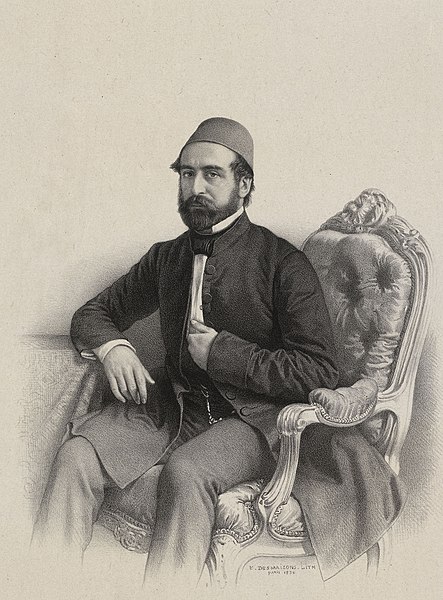Ottoman Reform Edict of 1856
The Imperial Reform Edict was a February 18, 1856 edict of the Ottoman government and part of the Tanzimat reforms. The decree from Ottoman Sultan Abdulmejid I promised equality in education, government appointments, and administration of justice to all regardless of creed. The decree is often seen as a result of the influence of France and Britain, which assisted the Ottoman Empire against the Russians during the Crimean War (1853–1856) and the Treaty of Paris (1856) which ended the war.
Ottoman constitution of 1876
Stefanos Karatheodori Pasha (1789–1867) played a crucial role in enforcing equality in education, government appointments, and administration of justice.
French translation of the edict, in Législation ottomane Volume 2, written by François Belin
The Tanzimat was a period of reform in the Ottoman Empire that began with the Gülhane Hatt-ı Şerif in 1839 and ended with the First Constitutional Era in 1876. The Tanzimat era began with the purpose not of radical transformation, but of modernization, desiring to consolidate the social and political foundations of the Ottoman Empire. It was characterised by various attempts to modernise the Ottoman Empire and to secure its territorial integrity against internal nationalist movements and external aggressive powers. The reforms encouraged Ottomanism among the diverse ethnic groups of the Empire and attempted to stem the rise of nationalism in the Ottoman Empire.
Diplomat Mehmed Cemil Bey wearing a frock coat and a bow tie.
Necip Ahmed Pasha, career officer and composer in French-inspired uniform.
Governor Rahmi Bey
Mehmed Galip Bey Efendi







